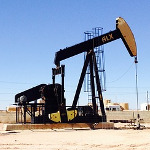By Shane Randolph and Jeff Nicholson
Opportune LLP
With over $370 trillion of global financial contracts referencing LIBOR (London Inter-bank Offered Rate), many oil and gas companies are curious about how the phase-out of LIBOR by 2021 could impact their organization. Many companies are beginning to ask how this transition will impact their organization and what steps can be taken now. The following is a discussion of:
• why LIBOR is being phased out;
• the transition plan for the phase-out;
• items companies should consider; and
• the steps that can be taken now.
Why is LIBOR Being Phased Out?
LIBOR has been the default local and international benchmark interest rate for a diverse range of financial products for decades. The rate is based on various banks’ proprietary observations rather than robust market transactions. This has left the rate vulnerable to manipulation and major rate-fixing scandals came to light starting in 2007. As a result, the U.K.’s Financial Conduct Authority (FCA) decided that it will no longer compel banks to submit LIBOR estimates by the end of 2021.
What is the Transition Plan?
As a response to the issue in the U.S., the U.S. Federal Reserve Board (the “Fed”) convened the Alternative Reference Rates Committee (ARRC) in 2014 to establish a viable alternative to the U.S. dollar LIBOR. The ARRC determined in 2017 that the overnight indexed swap (OIS) rate based on the Secured Overnight Financing Rate (SOFR), a broad treasury repurchase agreement financing rate used when banks borrow or loan treasuries overnight, would be its preferred alternative reference rate. Accordingly, the Fed began publishing the SOFR daily rate on April 3, 2018 to prepare for its use as a benchmark rate.
The current transition timeline proposed by AARC has SOFR being the primary replacement for LIBOR in the U.S. by the end of 2021. The table below shows the ARRC’s anticipated completion dates and milestones to be achieved by those dates.
There are concerns about utilizing SOFR as a benchmark rate, and it will take time for enough liquidity to develop in the SOFR market to alleviate concerns regarding its viability as a benchmark. One issue is that SOFR is a spot rate from the median of overnight transactions, and it is likely to vary materially from day-to-day. Another issue is that SOFR has only a one-day tenor, whereas LIBOR has many different tenors.
What Should Companies Consider?
Companies should inventory all agreements that reference LIBOR. Also, when executing new agreements, management should carefully consider language addressing alternative or fallback rates if LIBOR is unable to be determined. If contracts are not amended to include alternative rates or fallback provisions in the absence of LIBOR before the relevant LIBOR index is discontinued, it could cause settlement issues or render contracts invalid.
From an accounting and financial reporting standpoint, the impact could be substantial. The primary areas affected include hedge accounting and accounting for debt modifications. In addition, discount rates for impairment testing, lease accounting, asset retirement obligations and fair value estimates will need to be assessed. Fortunately, both the U.S. and international accounting regulatory bodies, FASB and IASB, appear to be aligned and will provide significant relief for the transition, particularly in the areas of hedge accounting and debt modifications. As of now, the actions by the FASB and IASB are tentative proposals, but additional guidance should be provided by the end of 2019.
What Steps Can Be Taken Now?
At this stage in the process, companies should increase organizational awareness, carefully monitor the execution of new agreements referencing LIBOR and create an inventory of existing agreements and valuation models.
Increasing organizational awareness will be key for the transition away from LIBOR. While some may be aware of the impending LIBOR replacement, there may be a lack of appreciation of how broadly the event will impact the organization beyond hedging and debt activities. Increasing awareness throughout the organization will also assist in monitoring the execution of new agreements referencing LIBOR.
In summary, the replacement of LIBOR will have a significant impact globally. Oil and gas companies are encouraged to consider the impact to their organization and take steps to assess existing agreements and carefully monitor the execution of new agreements.
As a Managing Director at Opportune, Shane Randolph assists companies and financial institutions throughout North America, South America, Europe and Asia-Pacific in their understanding of what is possible as they deal with the challenges of implementing risk management programs and highly technical accounting pronouncements. He oversees the risk management, derivatives, stock-based compensation and complex securities service offerings of Opportune. He assists clients with the entire risk management life cycle, including strategy, execution, compliance, valuation and hedge accounting. He has undergraduate and graduate degrees in accounting from Oklahoma State University. He also is a member of the American Institute of Certified Public Accountants and maintains a Series 3 Securities License.
Jeff Nicholson is a Senior Consultant in the complex securities, hedging and stock-based compensation practice of Opportune LLP. He holds a Bachelor’s degree in Business Administration and Management from the University of Colorado, Boulder and a Graduate degree in Finance from the University of Colorado, Denver.





